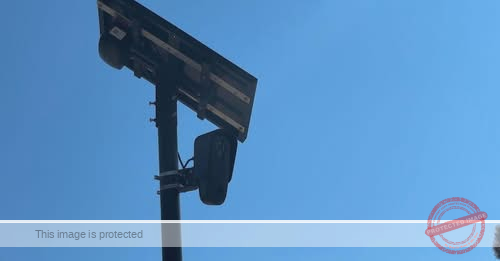Centennial Airport stolen vehicle crash highlights Colorado sheriff’s case for flock cameras

A Colorado sheriff is expressing his concern over the ability to catch car thieves after the City of Denver decided not to continue the use of Flock cameras.
Late Wednesday evening, Douglas County Sheriff’s deputies pursued a stolen vehicle that ended with a crash at Centennial Airport. The incident is one of many examples of law enforcement across the state catching suspects with the help of Flock cameras, which take photos of license plates that drive by.
However, on Monday, the Denver City Council unanimously rejected a two-year extension of the Flock Safety Program, which placed license plate readers along roadways all across Denver. Members cited privacy concerns and potential opportunities for misuse as reasons.
To Douglas County Sheriff Darren Weekly, it should only be concerning for those breaking the law.
“I had the system up yesterday, about every five or 10 minutes, I had an alert that we had a problem,” said Weekly.
The Sheriff calls the technology a game changer and is concerned with Denver’s recent decision not to renew its contract to keep it.
“For Denver to stop using this technology, they are potentially affecting the entire rest of the Denver Metro area and our ability to solve crimes in our jurisdiction,” said Weekly. “It’s a black hole for law enforcement. ”
Jurisdictions across the state are able to access the database to catch suspects wanted for crimes.
“Criminals talk. Not only do they talk about where law enforcement is going to chase you or be more aggressive in terms of our ability to capture you. But they also talk about who has license plate readers and who doesn’t have license plate readers. They plan for that.”
Through this technology, law enforcement is alerted when a vehicle associated with a crime passes by a Flock camera. It uploads a photo of the vehicle and its license plate, as well as a pin on a map of where it was located.
The deputy who receives the alert would then have to access an additional state computer database to gain more information, such as who the vehicle is registered to.
“Nobody is accessing this information without a need to know. They need to have a case number or articulate their reasons for accessing the information, but again, they have to look at another database to determine what they actually have. That information is not available on the system itself,” said Weekly.
In addition to general privacy concerns, Denver city council members fear the information could be shared with ICE. But, both the Denver Police Department and Sheriff Weekly say that’s not happening.
“We have never given ICE any information, and they have never asked for it,” Weekly explained. “There’s absolutely no facial recognition that is associated with this. This just searches plates and vehicle descriptions. That’s it.”
A Denver city council member told CBS Colorado the city council is now working on an ordinance that will govern surveillance technology. The belief is that the mayor’s office would like to continue using this type of technology, only under the protection of an ordinance.
